Expressed in an Interview with the Vice President for Science and Technology Affairs;
Creating value for knowledge-based science
Creating value for knowledge-based science
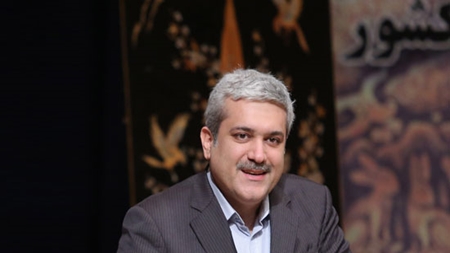
One of the required factors for improved knowledge-based system is venture capitals. These types of investment must be carried out by the private sector.
According to the public relations and information center of the Vice-Presidency for science and technology affairs, Sorena Sattari speaks very clearly and precisely. This is the characteristic of a government member, whose scientific aspect dominates his other personality aspects. Over the past two and a half years, he tried to bring a new conversation, which is replacing of economy based on oil and other resources sales revenues with knowledge-based economy, in the economic culture of Iran as the vice president in the eleventh government. In this regard, special attention has been paid to the topic of expanding and strengthening of knowledge-based companies. Sattari and his colleagues have provided detailed plans to achieve economy of resistance with a focus on knowledge-based economy. They hope that operating these programs will lead to significant improvements in this field. Here, the context of the interview of Dr. Sattari, the vice president for science and technology affairs and president of national science foundation, with the journal of “Industry and Development” is presented.
One of the programs of the Vice-Presidency for science and technology affairs, which is in line with obtaining the economy of resistance, is matching the innovation system of the country with its national priorities. Today, how do you evaluate this alignment?
Topics presented over the past two and a half years have been new issues in the economy of our country. Our economy has always been based on underground resources. For instance, you have a mine and you want to exploit its oil and gas reserves. Therefore, there have always been resources involved in our economy, for which we have worked on smaller industries of this field to produce a product. Despite our unique features, we have never thought about knowledge as an economy source. We are recognized as one of the first countries of the world with a remarkable human resource. There are 32 million of individuals in Iran within the age range of 20-40 years. In addition, we are the fourth engineer-training country of the world. In addition, there are five million students in our country. There is no doubt that these features have led to the ranking of Iran among the 10 top countries of the world in all global standards. However, when we focus on resources, we never think about universities and research centers as economy sources. The national innovation system is also a new concept recently discussed in the country and we are still in the first steps in this field. Nevertheless, a new literature has been presented in the economy of our country in the past two and a half year, and we hope to be able to supply a significant amount of gross domestic product from this field. This literature has had significant impacts on many parts of the society, changing the daily lives of people.
What is the perception of each person about other people? They are classified based on their money, car and house. We do not think about other’s thoughts and ideas for the future. If we accept that our asset is not the money in our pocket, but rather the idea in our mind, then we would be able to find a solution to change our economy for the better. One of the most serious issues of universities is that government budget covers almost 90% of expenses of government universities. Meanwhile, this number must be reversed; it means that a great amount of this budget must be provided through technology sale, industry relations contracts and investment of the private sector. This is the literature that must be spread in universities, industry, economy and banking. If you give large knowledge-based companies, which are active whether inside or outside of Iran, they cannot be priced since a banking system is not able to price an idea or branding and just sees land and building as guarantees.
A part of literature and culture building is carried out by media and IRIB is the most comprehensive media of Iran undoubtedly. This organization is also the president of the workgroup related to literature and culture building in the area of economy of resistance. In your opinion, has IRIB been successful in creating this type of literature?
Fortunately, we have a good relationship with IRIB and have created many joint programs with each other, which is still happening. About one month ago, I personally thanked Mr. Sarafraz, the former chairman of the organization, because of this joint cooperation and fulfilling the obligations of the joint memorandum. However, there are significant infrastructure problems in this regard. The main goal is to bring these concepts to everyday life of people. Therefore, we need find a group of writers and directors to do so. Therefore, all of these jobs are not on the shoulder of IRIB and everyone must work together. Not long ago, I was talking with Mr. Hojati, minister of agricultural jihad, who emphasized on the same issue, expressing that sometimes, he is unable to describe the actual agricultural potential of our country. Today, it is pointless to say that we had 10-20% less rain and be upset about it. You can decrease water consumption by 200% using the right technology. We cannot say that a region has 100-200 mm of water per year and will remain a dessert forever. You can definitely find plants that are economically compatible and can be used at the commercial level even for dry farming. This lack of use of technology, despite the presence of many technologies in the modern world, is mainly due to lack of experts who can efficiently turn ideas into commerce. Why is that? Because our human resources do not work. Whenever our children go out and see garbage on the corner of streets, they blame the government. They say that our government have oil money and must solve this problem. However, they do not think about the fact that elimination of this problem can be carried out in the form of a business. This is the basis of all startups that are formed in the world. It means that you provide a service for society members, which is both accessible and cheap. Therefore, this service is turned into occupation and business. Meanwhile, whenever we want to initiate a job, we say where is the money? This the oil-oriented thinking I was talking about. Now, I tell you that money does not matter. What is important is your idea and, more important than that, is who wants to turn this idea into business? In other words, you need to recruit a motivated person, who will get up and continue his work even if he fails 10 times. This person can extensively keep track of his work over a few years. These types of ideas have been in our minds our whole lives, but it is important that who is willing to turn them into business? This is observed all around the world. For instance, the idea of social network was once on the mind of many people, but it was “Mark Zuckerberg” who turn his idea into “Facebook”. This is the part that we always forget about.
Therefore, culture building and promotion of this issue is important must be continuously followed up. In this regard, we established a headquarter to build the culture of knowledge-based economy as a two-year mission.
The model, which has been prepared and applied for commercialization of knowledge and turning idea into wealth in the past few years, is expansion and strengthening of knowledgeable companies. Nevertheless, the majority of these companies are relatively new and have week financial powers. On the other hand, limited resources have been predicted for innovation and prosperity fund to provide facilities for these companies. What are solutions have you considered for financial support of these companies?
Our ecosystem is very important. We have many problems in the current ecosystem of the country. Have you ever thought why “Silicon Valley” is located in one place of the world? I believe it was Dubai, our neighbor, who wanted to establish a “Silicon Valley” about 20-25 years ago and also advertised about it, but failed to do so. Do you think establishment of a “Silicon Valley” only requires a building and land? Yes, when people like us, who have oil, go there, we say this is nothing. This is just four laboratories, two sheds and a few buildings. We come back and copy their ideas and think that an ecosystem has been created. The main part of the ecosystem of “Silicon Valley” is its entrepreneurial section. The private sector must come to the conclusion that it should invest in people instead of buildings, coins and dollars. Today, the price of buildings around Sharif University is 10-15 million IRR more expensive than other buildings in the area. This has happened over the past few month. There is a global standard which says that the price of buildings around a university must be 30% more expensive in the region. So, it is clear that something good is happening in that university. We cannot say university has an impact on the society, but it cannot change the area around it. Where does this come from? This occurs when companies under construction, including university students and professors and companies outside of the organization, are located at the university. We want this type of ecosystem. The national science foundation has many great sources; however, it is also faced with implementation challenges. When you are living in an ecosystem so corrupted that everyone is looking for low-interest loans, it is not surprising that the foundation is faced with execution problems. In my opinion, loan is not an appropriate method for knowledge-based system. What is beneficial for knowledge-based section is venture capitals, which are provided by the private sector. We do not want to provide large companies with the resources of the national science foundation. Rather, we want to give these assets to small companies. The more these companies are under pressure, the better will be the results. It is noteworthy that all of successful companies, such as Facebook, Microsoft and Apple, were started in a garage. None of them obtained loans in the beginning of their work. In other words, none of them grew by a loan ecosystem. This should be also applied in Iran. Good companies in the areas of information technology or biotechnology received no loan on their first day. This type of work starts with an idea and must be shaped under pressure. Similar discussions are made in the social area as well. A wealthy young man will never be an entrepreneur, as we have never seen a wealthy individual who looks for entrepreneurship. A country that relies on its own resources will not be a successful country. There are so many countries in the form of islands in the middle of water with no natural resources but with high per capita income. Their people have better lives due to developed entrepreneurship in the country. Therefore, it is the ecosystem that must be changed. It is an old perception that occupation is formed with money and loans. I always talk about Isfahan as an example. Whatever you think about is produced in this province. Any type of factory has been established in Isfahan. Nevertheless, Isfahan is the second province of Iran with highest rate of unemployment. In addition, no other industry with chimney can be established in that region. You cannot bring an industry that requires only one m3 water. Therefore, it is clear that we have made some mistakes in some areas of employment and technology development. We brought a cement factory and added 20 more since we had the money. Meanwhile, production of cement is not important at all and having the cement technology is important.
There is an economic principle conveying that an investor should always look for guaranteed profits. Meanwhile, there is a high risk involved in the process of turning ideas into wealth, and it is possible that one out of 100 ideas be turned into a successful product. How prepared are our private sector, economic agencies and, especially, the banking system, for investing in this field?
There are various types of accelerators. For instance, there is an accelerator which takes only five percent of the share of a company, whereas there might be an accelerator that obtains 60% share of a company. This amount of share taking depends of type of cooperation. There are some startups in Iran, growth of which takes 10 years. The important fact is that an investor must believe that money can be obtained by these works. We will not win until we bring the private sector in research. Studies conducted with government budget are similar to Mehr Housing Project and automotive industries, that are established with government money. The quality of a research conducted by government budget is clear, as well as its efficiency and expenses. Nothing will happen until the private sector bear 70-80 percent of research expenses of the country. We have to make studies economic. Government budget is for areas where there is no economic research. Opposite of this applies to advanced countries. It means that money is spent in military area at one time, excess amount of which enters the private sector. However, today, the military section obtains technology from the private sector. This technology has been developed for another purpose; however, an intermediary system such as “Silicon Valley” brings this technology and makes it appropriate for military uses. We need to have such a perspective about research. We will not be successful until a significant amount of investments by the private sector. It is totally wrong to think that we can obtain government budgets for this act. The greater betrayal to knowledge-based companies is providing interest-free government loans for them. They have to grow by themselves. That is why I said that low-interest loan is meaningless in this ecosystem. Therefore, innovation and prosperity fund will enter only in the area of small companies, which also must be changed and work on VC.
In our country, education is one of our cultural problems. Many believe that investment in research is not profitable and until such beliefs are seen among people, the private sector will not invest in this area. How can we change this attitude?
We have programs related to this area on television almost every year, in which the mentioned companies are introduced and promoted. It is very effective when we see that an Iranian company active in IT area is 500 million dollars but has no property. Two years ago, Facebook bought “Whatsapp” with the value of 20 million dollars while this organization was just a building with 43 personnel. Do you think about how much oil you have to sell to earn that money? Our electronic business environment will be about 80 billion dollars over the next two years. There needs to be movement to provide content in this regard, which leads to earning so much money. In other words, you have a movement for startups that just provides content for environment. This applies from a person who wants to create a computer game to someone who wants to start an online shop. All of these lead to money and come from our own children. All of the applications in the fields of health, agriculture, industry, public services and cellphones are money. Technology comes out of these products that can be used later for defense or other projects. This is what needs to be done, and will occur in the future. When we started, there was no accelerator. Now, 10-12 accelerators have been established. The same applies for companies. Our problems on the first days at universities, where we were blamed to for sacrificing the sacred space of the research with money, are now resolved to some extent. Once, there were scholars such as Abu Ali Sina, Farabi, Kharazmi, Razi and Ibn Haytham in Iran. Have you ever thought why our current situation is like this? Why we are not innovators anymore? Why we have no creativity? The reason is this type of thinking and attitude. We have selected a wrong research approach. No one is against the investment of the government in knowledge boarders. However, our government must not enter the private business section. This is mainly due to the fact that whenever a company enters the business section with the support of the government, it is not stable and it will fail two month later after replacing its manager. This type of system must be changed.
Over the past few years, you have aimed to institutionalize this attitude in the society. However, how much of this change can be observed in economic organizations and ministries of the country?
One of the challenges of the country is extreme involvement of ministries. We are about 150-160 members in the Vice-Presidency for science and technology affairs. We are the only government organization with 3% of flowing budget. Our country has never been knowledge-based in management. You cannot easily move a heavy body that gains government money. However, you can change the private sector. For instance, we have nanotechnology development headquarter, which was established 12 years ago. Do you know our nano ranking in the world at that time? This year, we earned the sixth rank of the world in the field of nanotechnology. It means that we have been improved in this regard, passing countries like Japan. There are less than 30 members in this headquarter. There was definitely financial supports provided on the first day of its establishment. Anyone who wanted to start work would come and take a beautiful building in the center of Tehran. They would buy many laboratory equipment and recruit a number of people as researchers of the project. This is similar to what happens in our government organizations. All of the government research centers that were established with a holy goal one day are in the same situation. If we followed the same path in nanotechnology development headquarter, we would see that today we have 2000 members, asking ourselves what is the benefit of having this number of employees with this amount of salaries? They would buy a large number of laboratory equipment every year and define a series of research projects for themselves. As a result, we had to spend a lot of money on research projects and pay the salaries on time. This is the oil perspective toward research. However, with just 30 members, we have 97 nano research projects in the country and everyone work with us from all around the country. In addition, more than 300 companies are active in this area. In this regard, we have exported nano products to South Korea, which occurred after Barjam. We sent our first nano industrial machine to South Korea, number of which is accelerated. We also exported to China lately, and equipped 35 research centers of their high schools. In Iran, we have equipped 100 research center. You can compare this method with research technique applied in the government section. It is not right for the government section to enter this area, but it is expected for this section to use the facilities of Iran. In any area, I can find the best experts inside Iran to be selected as project manager. I can collect the best research team for any subject without ownership. We have so many academic professors and public and private research centers. It is wrong to assume that the most important barrier to research in our country is laboratory devices. We have established a laboratory network, which now contains 5100 high-tech tools and devices without being forced to have a laboratory. In fact, now we have 5100 high-tech laboratory equipment. Last year, we were able to provide one million services by this network. It would not be possible for us to have a store in which 5000 devices would be fitted. However, now we are the manager of a network, which can be used by anyone with discounts. For example, individuals covered by national elites foundation received 60% discount from the network. In addition, knowledge-based companies can obtain 50% discount from this network. These should not be kept just for special people and need to be applied for everyone eager to be active in this area. Nevertheless, we see this in many universities and research centers of the country. For instance, you can see that a device is used in three different universities since no one is eager to work with new and different devices. This type of thinking must be altered.
How can the establishment of joint research centers with other countries be effective in realizing knowledge-based economy, and is it possible to use investments by other countries in this regard?
One of our biggest mistakes in the area of technology transfer is the fact that we look for technology purchase. It has been many years since we had technology purchase term in our contracts, but has something have happened until now? It has been observed that in some industries we have purchased a technology 34 times. What will come out of spending money on technology transfer? Just some travels to foreign countries. Technology is not something to buy, but rather something to learn. You cannot learn mathematics with money. You can hire a good teacher to teach you about this concept; however, it is up to you to spend time to learn about it. You have to be at right level. For instance, a teacher cannot teach the outline of the 10th grade to first grade students, even if you give him good money. The same applies for technology. It means that you need to have companies that can conclude contracts, and they must be at an appropriate level to use technologies. Even when you reach this level, be sure that it is not easy to buy technology from a foreigner. This type of contract is not reliable since they know that technology transfer term of contracts is worthless and leads to nothing but a few travels abroad and two visits and six educational courses, instructors of which are not known since for such a group of managers is recruited for such events. Those who actually work with these technologies and devices are rarely sent for such projects. However, we are following up this section and did the same with many countries. But we have to know that foreigners want to identify and take the youth of the country away. We would do the same if we were in their place. It means that when an Australian, German or Canadian person comes to Iran, he/she says how can communicate with universities? Especially when we are proud to say we have the most talented engineers of the world, especially those with bachelor’s degrees. This cannot be interpreted as technology exchange. We have had examples where an individuals with bachelor’s degree is sent to visit an important research center and not the technical team. This is mainly due to the concept of human resources. Today’s fight is on recruiting talented but cheap experts as human resources. We need to develop knowledge-based economy if we want to keep our children in Iran. We need to have job for them. Some of these individuals are recruited by knowledge-based companies and some will work in high-quality research projects. We are completely ready for joint projects with other countries. In this regard, we have been able to conclude some contracts with countries such as Korea and China, and Kazakhstan, which is at a lower level than us. We can earn revenues from these contracts. In addition, we have contracts with European countries in specific areas. Nevertheless, this is one of our major solutions. Today, we have the best relationship with Russia and have concluded many contracts with this country, hoping for great opportunities in the future.
You mentioned elites. What is the best model to recruit elites in a system with knowledge-based economy? and, What plans do you have to bring back those who immigrated from Iran?
What do consider in your life as the main asset? Are your children assets or your money and properties? Nothing will change until people of our country realize that children are the actual assets. Oil is not important. It is human resource that must be emphasized. Currently, we have been able to export biotechnology medications to Russia. We have covered 100% of markets of Russia with some of our products, which replaced the American and European drugs. Each vial containing several grams of this medication is equal to export of 200 oil barrels. We have to accept that our children are our main asset; otherwise, everything will remain the same. If we regard people as assets of the country, then we would think to ourselves why they leave and come back? And how can we recruit them? Unfortunately, our system raised us in a way that we cannot consider individuals as assets of the country. When human resource of Iran is educated in universities, it seems that they are trained to be recruited by academic centers and there is no plan for how to educate them. Why do we have to have these fields of study? Since they said so! In fields of electric and mechanical engineering, it is clear where the syllabus is coming from. In fact, you are training manpower for another market. We have Olympiads of mathematics, physics and astronomy. But why do we do that? These are the structures that must be gradually changed. We cannot expect it to happen at one night. Fortunately, we have designed a system for return of our children, and have been able to bring back 155 individuals from 100 valid universities of the world from the last May. A number of these individuals are coming back every week. When we say 100 valid universities, we are talking about 1500 individuals, among whom 155 have returned to Iran.
Has there been a reduction in migration rate?
We are investigating in this area. Despite the claims, our immigration rate is not that high. From a total of four million and 800 thousand students of Iran, 50 thousand individuals are currently studying abroad. This constitutes for 1.1% of total students of Iran, whereas mean global rate is 2%. For instance, this rate has been estimated at 1.4% in America. In fact, they encourage their students to study in specific fields in another country and then come back. Today, America has 11 thousand Iranian students, which forms the largest colony of Iranian students abroad. Meanwhile, we have had no political associations with America. However, we have ranked 12th in America in this regard. On the other hand, Saudi Arabia has 67 thousand students. This is when Saudi Arabia funds all of its students but our students obtain fund from other countries themselves. This a matter of debate. We should not think that funding of students will make any positive changes since this is the same oil-based thinking. Funding must at least be carried out as a purposeful action. Today, the budget of “King Abdullah University of Science and Technology” is 2.5 billion dollars in a year. However, they will never become a university like “Sharif University of Technology” if they increase their budget to 25 billion dollars. We think about money when entrepreneurship does not require money. Entrepreneurship emerges in a person who has had no money to begin with, not an individual with a wealthy father. Entrepreneurship depends on brain, idea and confidence. When we consider the international scales, we observe that our immigration statistics are not high. However, our problem might be due to lack of a coherent plan. It means that we have change our perspective. Currently, we have had people coming back to Iran from other parts of the world. One of these individuals had an annual salary of 350 thousand dollars in America and even reject an academic position in universities of Iran. This person has come back to Iran to start his own company because he considers Iran as a unique market for the idea he had in America. We are a large market and our surrounding areas have great markets as well. However, we need to open our borders to these people. We are not going to pay the same amount of salary to these people to come back. These individuals do not come back for money; they come back to be relaxed and work on their ideas without any tensions. They are require a special market for their work. In this regard, we have had a comprehensive mechanism, the main topic of which is the exchange of our children. They will be free come here, hold conferences and workshops and cooperate with research projects, and go back. This is a platform designed by us, in which a few individuals will stay and make progress in their own country. Not everyone want to go to the university, especially now that commercialization in the field of science has had great improvements. As a student in University of Stanford, the first thing you hear is entrepreneurship, startup and turning ideas into wealth. This not the case in Iran. As a student in universities of Iran, the first you are asked is have you applied yet? Applying for a university abroad should not be regarded as a goal. If that was be the case, students would feel bad about themselves if they had applied nowhere until their third semester. Their attitude toward this issue will change when they see our children coming back to their homeland. I was one of these individuals. From all of the students of Sharif University of Technology at that time, most of them are currently faculty members of the university, 4-5 are faculty members in foreign universities, some are faculty members of other universities of Iran and some has established companies in Iran. I have to say that many of those who left Iran are now regretting it. They feel that if they had stayed here, they would have had better improvements. However, there are those who are content about their current situation. At this age, when they want to come back to Iran, similar to when they decided to leave their homeland, they think that why should they come back? They think about their classmates and how much they have been able to achieve, when that person must come back and start with nothing. All of these barriers must be considered and eliminated to facilitate the return of these people. We have find the best location and say where to start in order to push them forward in the beginning. In addition, not all of these people want to work in universities. In fact, their tendency is more toward establishment of companies, especially those who have studies in engineering. Great advancements have observed in commercialization of human resources, and the Vice-Presidency for science and technology affairs has established programs to facilitate this notion.
One of the most important pillars of knowledge-based economy is the concept of export of knowledge-based products. Something that must replace oil-based revenues. What is your strategy in the area of export of knowledge-based products and what are the barriers of this area?
Again, this is a new concept in our economy. The first question they ask you in this regard is do you have CE? This is the primary question asked from a company in foreign exhibitions. Meanwhile, our companies do not even know what CE is! What are its stages? How can be obtain standards in this regard? How can we register our patents? Then, we have the biotechnology area. You must have a clinical trial. As it is not possible to bring a medication for export to a country. Obtaining a clinical trial confirmation in Europe takes 6-8 years and is extremely costly. For instance, you want to export medical equipment to Russia. They ask you: where are your letters of approval? In addition, they do not accept our standards. This new concept introduced as “export of knowledge-based products” requires a new culture and new individuals. It has been two years that we have established a corridor, in which necessary educations are provided by expert lawyers. Let us image that one of our medications has been registered in Russia and another four will be registered by the end of the year. Registration of each drug takes three-four years. In terms of medical equipment, four-five medical tools have been registered. The same has occurred in Kazakhstan. All of these require a new culture. Moreover, branding is another concept of knowledge-based economy. It means that you need to make branding for medical equipment and pharmaceutical plants. Therefore, it seems that export of knowledge-based products is not that simple. However, when you enter this area, the revenues will be huge. For instance, registration of medications in Europe will result in million dollars of benefit. In this regard, we are following up the registration of at least 10-12 products in Europe.
In order to realize the economy of resistance, one of your plans has been turning Iran into a technology exchange hub. What have you done in this regard?
We do not have strange claims. We need to use the private sector in this area. It is wrong to think that technology exchange can occur through government. Our government system must use the current researchers of the country instead of recruiting new ones. In addition, it should ask for work instead of providing funds for research. We are not going to recruit someone and pay them to conduct research for us. We need to obtain the work according to a specific goal. I have always been one of the serious opponents of 3% research budget by the government. It is not right to say that 3% of the government budget must be allocated to research. What will be the consequence of this investment? They do other works and say this is the same 3% budget. They establish research centers and recruit employees. They buy laboratory equipment. Something that bothers me so much is that whenever I visit a center, I see that they remove dusty plastics off of their equipment. It is obvious that it has been six months since someone has worked with that equipment. Then, we say this is the best equipment in the middle east. What do we want to do with it? This must occur simultaneously, which will be realized through having an ecosystem with financials provided by researches. From 5100 machines in our laboratory network, while only 20% have been produced in the private sector, 70% of services of this network are provided by this sector. It means that only 30% services are provided for 80% of government equipment used in universities and research center. Nevertheless, they use a great amount of money in this system. They have bought many tools that are left unused, and allow no one to take use of them. For instance, a person enters the laboratory with a sample and the main issue upon entrance is how to pass the sample from guards so that it could be possible to obtain services. The fact that our country was one of the most powerful countries in the world over the past 6000 years due to its technology, scientists and experiences is not because of oil. Being regarded as a technology hub in the past was not because of oil. In fact, we distanced ourselves from this title when we found oil. We think that if we do not have oil, we will be miserable. This is similar to me thinking that if I lose my position in the government, I will die and cannot find another job in Tehran. Government salary and employment is a barrier to creativity. It means that you will never realize your talents and entrepreneurial ideas, making jobs for another 20 people. Our government thinks that there will be nothing to do and everything will be lost without oil. However, that cannot be the case while we have this amount of potential and human resource. Lack of oil does not mean going to your homes and die. So what is our responsibility? Everyone is angry with the government because it cannot create jobs. Do you think it is the duty of our government to create jobs? How you seen something like that in the world? Our government must provide a business environment. If it wants to make jobs, it needs to recruit employees. Those who are recruited by the government are taken out of the circle of entrepreneurship and innovation. These thoughts must be changed. Our children must realize that they go to the university to make jobs for themselves and others and they cannot rely on the government. We studies to be entrepreneurs and increase per capita GDP of the country. Nevertheless, studying will not matter if we turn employment to being employed. All of these studying will be summarized in just a license, with which you can be employed and obtain a larger salary.



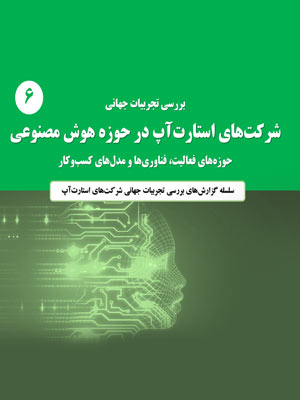



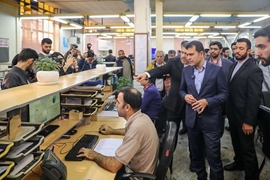
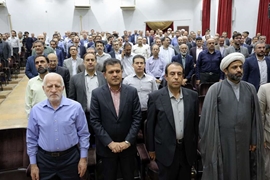
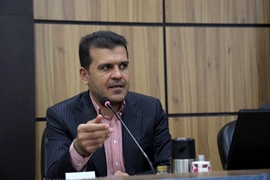
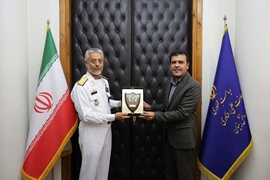

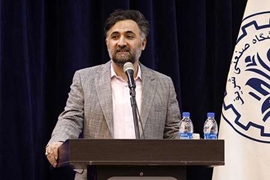
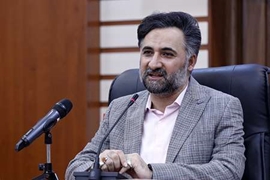
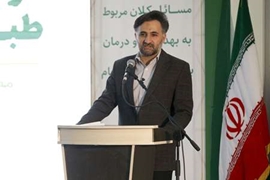
comment